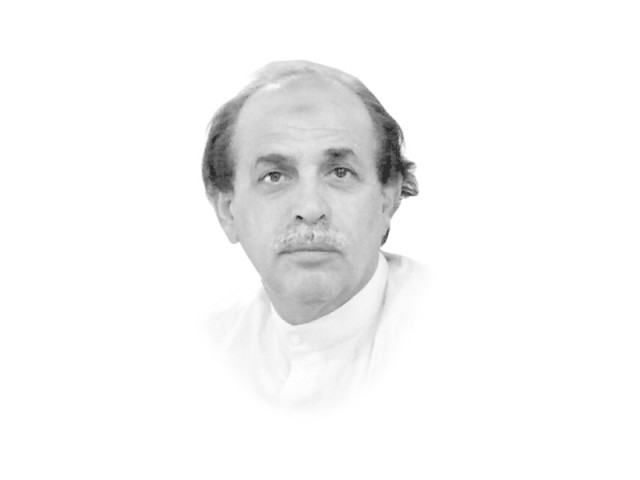Eradicating terror through acceptance of flawed policies
Today those who watered the seeds of extremism are not ready to realise their mistakes

Shamim Shahid is the city editor of the Peshawar edition. PHOTO: FILE
Although much has been lost, policymakers have yet to build consensus on the issue of terrorism and adopt a procedure to tackle the menace. A couple of years ago when the destruction of schools started in Swat, some politicians — who now occupy important government offices — refused to join proponents of peace. The latter would regularly protest in front of Peshawar Press Club.
Even as they denounce terrorism, the politicians are reluctant to criticise those who claim responsibility for such attacks. Today those who watered the seeds of extremism are not ready to realise their mistakes.
No condemnation
A day after the deadly attack on Bacha Khan University, Jamaat-e-Islami chief Sirajul Haq arrived in a motorcade procession to join the prayers for the departed. He expressed sentimental remarks before the media and left without grieving with the students and employees of the university.
While speaking to journalists, Siraj said the attack was not against the university but was against 180 million people of the country. He expressed disappointment over the delay in the implementation of National Action Plan. And even made a jab at the university administration for not adopting security measures on a day when the varsity was hosting an event for the late freedom fighter, Bacha Khan.
But Siraj said nothing about the militants who not only claim affiliation with the banned outfit, Tehreek-e-Taliban Pakistan, but also claim they were behind the attack on the university. This is a university which produces military generals, lawyers, judges, police and civil officers who, as per TTP, are against Islamic norms.
Lack of action
On the other hand, Chief Minister Pervez Khattak went a step further by asking the federal government to expel Afghans and declare an emergency as the country which is “in a state of war”.
This is not a point of view shared by Aftab Ahmed Sherpao whose Qaumi Watan Party is a shareholder in the Khyber-Pakhtunkhwa coalition government. Sherpao considers these acts to be the outcome of unsuccessful internal and external policies of the successive rulers.
No one can deny that northern Pakistan is the battleground for proxy wars between global and regional forces since decades. Such forces are not only investing in militant groups but are also spending on mustering support from other avenues. These are the forces which disrupt plans to get the country back on track – a track it has not been on since it was created.
Across the border
Even in Afghanistan, almost all religious circles backed the United States during the war against the former Soviet Union. But when the jihadi forces split into factions, the mysterious phenomenon of Taliban erupted.
In Afghanistan, leaders came together to oppose the Taliban. But religious circles in Pakistan, including Jamaat-e-Islami and factions of Jamiat Ulema-e-Islam took steps for the ‘Talibanisation’ of Pakistan.
And now the entire country and its people are suffering with this war which uses ideology as its fodder. Ironically, these politico-religious circles have not yet realised their mistake.
With the passage of time, many know who is responsible for these inhuman acts in Pakistan, but they will not speak about it. Not many will. And without this acceptance of their — and our — mistakes, nothing will ever change.
Published in The Express Tribune, January 25th, 2016.













COMMENTS
Comments are moderated and generally will be posted if they are on-topic and not abusive.
For more information, please see our Comments FAQ